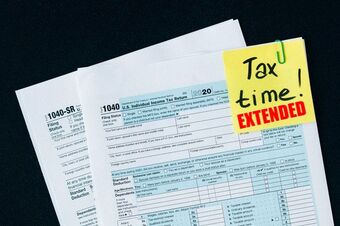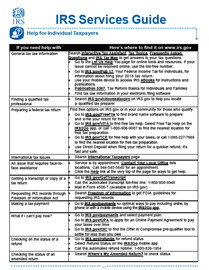|
KEY 2023 DATES
January 23: IRS begins accepting and processing individual 2022 tax returns. February 28: Refunds including Earned Income Tax Credit (EITC) and/or Additional Child Tax Credit (ACTC) deposited into taxpayers’ bank accounts or on debit cards for most taxpayers who e-filed returns with a direct deposit selection prior to mid-February and have no processing issues. The delay in issuing EITC/ACTC related refunds helps the IRS reduce the number of fraudulent refunds issued. April 18: Tax deadline to file a 2022 return or request an extension of time to file. Last day to pay any taxes owed without incurring penalties and/or interest. October 16: Tax deadline to file a 2022 return for those with extensions.
0 Comments
Last week the IRS announced that they would begin accepting and processing 2021 tax year returns on Monday, January 24, 2022.
In the announcement, the IRS encouraged tax filers “to have all the information they need in hand to make sure they file a complete and accurate return.” They went on to say, “Having an accurate tax return can avoid processing delays, refund delays and later IRS notices. This is especially important for people who received advance Child Tax Credit payments or Economic Impact Payments (American Rescue Plan stimulus payments) in 2021; they will need the amounts of these payments when preparing their tax return. The IRS is mailing special letters to recipients, and they can also check amounts received on IRS.gov." NOTE: The Protecting Americans from Tax Hikes Act of 2015 (or the PATH Act) “mandates that the IRS not issue a refund on tax returns claiming the Earned Income Tax Credit or Additional Child Tax Credit until Feb. 15. The additional time helps the IRS stop fraudulent refunds from being issued to identity thieves and fraudulent claims with fabricated wages and withholdings.”  Although the tax due date was extended in Texas to June 15, 2021 as a result of February’s winter storms, this date is quickly approaching. You can read about the various tax return deadline extensions as well as other tax relief assistance here. According to the IRS, taxpayers can protect themselves against identity theft by using the following six tips.
Source Visit the IRS Economic Impact Payment Information Center for the latest and most up-to-date FAQs regarding stimulus payment eligibility, amounts, timelines, scams, and much more HERE.
The federal income tax filing due date is extended from April 15, 2020, to July 15, 2020. You also have until July 15 to make any 2020 federal income tax payments, without penalties and interest, regardless of the amount you owe.
This applies to all taxpayers. You don't need to file additional forms or call the IRS to qualify. If you can't meet the July 15 filing deadline you can request an extension by filing Form 4868 (PDF). If you're expecting a refund, file as soon as possible, preferably electronically, it's faster, safer, and more accurate. Site source.  Click on image to view. Click on image to view. Whether you are an individual taxpayer or a tax professional, this handy guide shows you where to find answers to your most pressing tax questions or needs in a two-page, quick reference format. By law, the IRS cannot issue refunds before mid-February for tax returns that claim the Earned Income Tax Credit (EITC) or the Additional Child Tax Credit (ACTC).
The IRS expects the earliest EITC/ACTC related refunds to be available in taxpayer bank accounts or on debit cards starting on Feb 27, 2019, if they chose direct deposit and there are no other issues with their tax return. NOTE: Even though the IRS issues most refunds between 7 and 21 days, some tax returns require additional review and can take longer than 21 days for refunds to be issued. Source: Publication 2043 (Rev. 1-2019) The IRS begins accepting and processing 2018 tax returns on Monday, January 28, 2019.
The filing deadline for most taxpayers to file individual returns is Monday, April 15, 2019. Read the news announcement here. |
Archives
January 2023
Categories |
© 2018 - 2023 Shaheed & Associates, LLC. All Rights Reserved.
 RSS Feed
RSS Feed